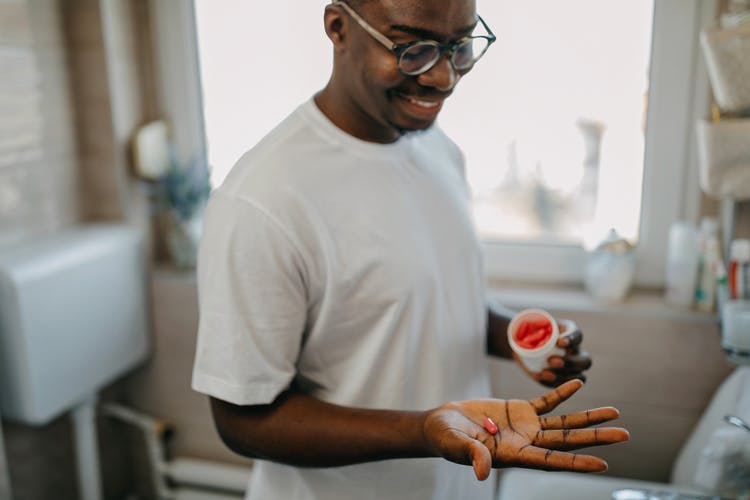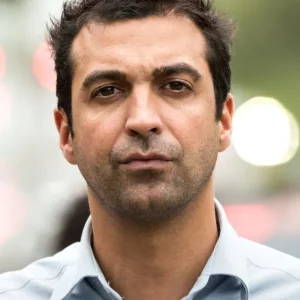Taking extra vitamins, with your doctor’s approval, can help with traumatic brain injury (TBI) recovery. While there is no magic pill — only a consistent, long-term rehabilitation program can remedy the effects of a TBI — plenty of clinical evidence shows that certain vitamins and supplements help support the brain during recovery.
This naturally raises the question: which vitamins and supplements are the best for TBI survivors? To help you have an educated conversation with your doctor, this post will cover seven helpful vitamins for brain injury recovery.
How to Use Supplements for Traumatic Brain Injury
There is an abundance of evidence showing that nutrition plays a significant role in TBI recovery, and that a good brain injury diet promotes healthy brain function. Many of us know that we should eat healthfully, but sometimes it is not possible to get enough of the food that fuels your brain, especially after a brain injury, which often causes a decrease in appetite.
This is where vitamins and supplements can help. The right nutrients can provide your brain with the tools it needs to heal and function at its best. Whether you struggle to eat a balanced diet due to low appetite, poor mobility that affects your ability to cook, or post-TBI fatigue, supplements (that are approved by your doctor) can help naturally heal the brain after it sustains damage.
However, it’s important to acknowledge that getting your vitamins through healthy food is superior to supplementing. You will get the most benefit from doing your best to eat a healthy diet (paying special attention to the foods known to boost TBI recovery) and supplement where your diet may fall short.
Also, we are serious about getting your doctor’s approval, because as you’ll soon learn, some supplements can interact negatively with medication or exacerbate preexisting health conditions. Use this guide to have an informed conversation with your doctor.
The Best Vitamins for Brain Injury Recovery
Now that you know the importance of vitamins and supplements for traumatic brain injury recovery, let’s dig into some of the best nutrients to consider.
Based on clinical evidence, here are some of the best supplements for brain injury recovery:
1. Omega-3s
Omega-3 fatty acids are great for improving overall brain health. They help improve cognition and memory and can even boost the production of BDNF (Brain Derived Neurotrophic Factor), which helps your brain grow new nerve cells. Since brain injury recovery is all about rewiring the brain, assisting the brain’s ability to grow new nerve cells is a clear plus.
Omega-3s are most commonly found in fatty fish such as salmon. If you struggle with getting fatty fish into your diet, over-the-counter supplements are available, such as fish oil capsules.
However, be aware that omega-3s also act as blood thinners, and they should not be taken if you’re on any blood thinning medication. Furthermore, if you have preexisting health conditions such as a bleeding disorder, blood thinning supplements should be avoided. Running all supplements by your doctor can help prevent any mistakes.
2. Vitamin B12

All B vitamins are good for your brain, but vitamin B12 is particularly helpful for traumatic brain injury survivors. Your body uses B12 for the production of myelin sheaths, an insulating layer of protein and fat that coats your nerves and allows electrical impulses to travel quickly and efficiently. This means that B12 helps improve neural function, which is a major plus for brain injury recovery. Vitamin B12 also helps your brain cells produce energy, which is crucial for the healing process.
You can get vitamin B12 in your diet by including animal products like meat and dairy. If you’re following a ketogenic diet, which has been shown to help TBI recovery, this will happen naturally. However, be careful when consuming a diet that is disproportionately high in any particular macronutrient (in this case it would be fat). If you have high cholesterol or other preexisting medical conditions that make dietary fat risky, talk to your doctor first.
And speaking of helpful fats…
3. MCT Oil
Medium-chain triglycerides (MCT) are a type of fat that is rapidly broken down and converted into ketones. Ketones, unlike regular fats, can cross the blood-brain barrier, making them a great alternative energy source for the brain (ordinarily, the brain uses glucose for energy).
After a brain injury, the brain requires extra energy to function, and this makes MCT another helpful supplement to your TBI recovery. Some evidence suggests that MCT oil may also have neuroprotective properties and help improve cognition and memory, making it even more appropriate for brain injury patients.
You can get MCT through certain foods such as coconut oil and dairy products, or you can supplement with MCT oil. People with diabetes should be extra cautious when considering MCT as an increase in ketones can lead to diabetic acidosis which can further limit your body’s ability to produce insulin.
Want 20 pages of brain injury recovery tips in PDF form? Click here to download our free ebook “15 Things Every TBI Survivor Must Know” (link opens a pop up for uninterrupted reading)
4. Antioxidants (Vitamins C, E, and Beta Carotene)

After a brain injury, inflammation increases in the brain, which can lead to secondary brain damage. A great way to counter this effect is to increase your consumption of antioxidants. The antioxidants found in vitamins C, E, and beta carotene help eradicate free radicals (unstable molecules that damage your brain cells) and reduce inflammation in your brain.
You can naturally get these vitamins in your diet by eating vibrantly-colored produce like strawberries, oranges, bell peppers, and carrots.
5. Vitamin D
Vitamin D is an important vitamin for brain injury recovery because it regulates genes important for brain function and has been shown to have neuroprotective effects. Vitamin D also helps strengthen your bone cells, improve your immune system, and manage fatigue, which is a common post-TBI effect.
Furthermore, if you struggle with impaired memory after TBI (another common effect), vitamin D may be worth your attention. This is because the hippocampus, the area of your brain that controls memory, is densely packed with vitamin D receptors. This suggests that vitamin D is important for memory retention.
In addition, vitamin D stimulates the production of neurotransmitters which improves communication between neurons. As mentioned earlier, since brain injury recovery includes rewiring the brain, any boost in nerve function is a major plus.
Our bodies normally produce vitamin D when our skin is exposed to sunlight, but sometimes it can be difficult to get enough “safe sun exposure.” Plus, there is ongoing debate in the medical community about whether or not there is such a thing as safe sun exposure, as it increases the risk of skin cancer.
If you have a history of skin cancer, or if you are at higher risk of getting skin cancer, it’s best to avoid unprotected exposure to the sun and instead opt for supplementing your diet with vitamin D.
6. Probiotics

Most people associate probiotics with digestive health, but did you know they can also help your brain? The brain and gut are linked through biochemical signaling between the enteric nervous system, the nervous system that is located in the digestive tract, and the central nervous system (CNS).
In addition, improving the microbiome in the gut will also improve the absorption of nutrients and metabolites into the circulatory system which will allow for the brain to receive those essential elements more efficiently.
Since a traumatic brain injury is a condition that affects the central nervous system, anything that helps boost the CNS is worth investigating. This makes probiotics an attractive supplement for brain injury survivors.
7. Acetyl L-Carnitine
Acetyl l-carnitine is among the best supplements for brain injury patients. Acetyl l-carnitine is an amino acid naturally produced by your body and a powerful antioxidant.
But what makes acetyl l-carnitine helpful for brain injury is that it plays a critical role in the production of the neurotransmitter acetylcholine. Acetylcholine is crucial for supporting healthy memory, computation, perception and several other cognitive functions.
Many brain injury survivors struggle with cognitive function after their injury. By providing the brain and body with the nutrients it needs, such as acetyl l-carnitine, you can help boost recovery.
Boosting TBI Recovery with the Right Nutrients
When the brain sustains a traumatic injury, you can help boost recovery by providing your body with the right vitamins and supplements that help boost certain functions. Many of the vitamins and supplements on this list help boost nerve function, which is critical after a TBI.
If you decide to explore any of these options, consult with your doctor to make sure they won’t interact with any medications or exacerbate preexisting health conditions or risks. Try your best to get these nutrients through a healthy, balanced diet and supplement when necessary.









